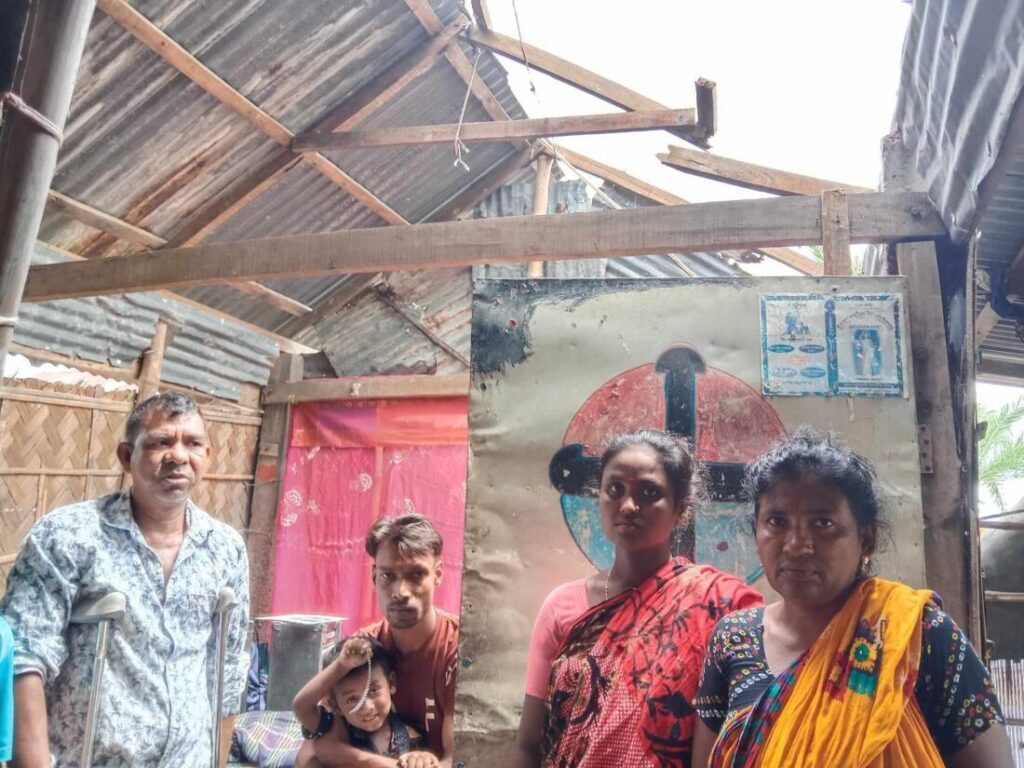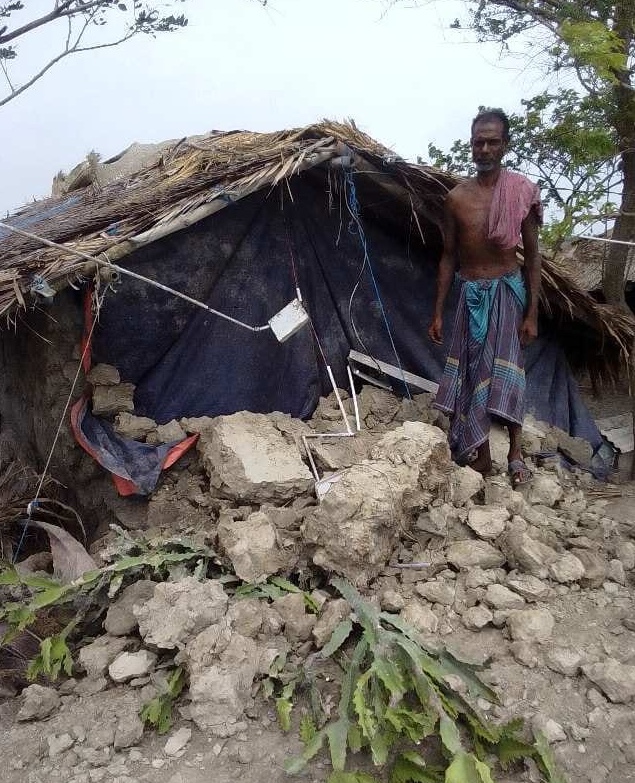ADRA Steps Up after Cyclone Remal Hits Bangladesh Hard
Assistance will support victims and help in rebuilding damaged structures.
June 13, 2024 | Goyang City, South Korea | Northern Asia-Pacific Division, and Adventist Review
A deadly cyclone named Remal struck the coastal areas of Bangladesh on Sunday, May 26, and remained within Bangladeshi territories for many hours. The Remal cyclone landed at the Mongla Port in southern Bangladesh and the Sagar Island coastal region in West Bengal, India, bringing heavy rains and maximum wind speeds of 135 kilometers per hour (84 mph).
According to local authorities, the cyclone destroyed 35,483 homes, damaged 115,992 more, and affected 3.75 million people in Bangladesh. It also devastated crops, uprooted trees, knocked down electricity poles, broke barriers, and washed away fish enclosures.

A church member’s house severely damaged by the cyclone on May 26. [Photo: Northern Asia-Pacific Division]
Thousands of people, including members of the Seventh-day Adventist Church, were forced to take refuge in their neighbors’ homes or spend nights under the open sky. The houses of many church members, estimated at more than 600 individuals, were damaged or destroyed. The cyclone also affected their crops and fish, leaving them homeless and struggling to find necessities.
Many church members are currently suffering from a lack of clean drinking water, sanitation, food, and shelter. Won Sang Kim, president of the church’s Bangladesh Union Mission, said that “in a country where 91 percent of the population is Muslim, Seventh-day Adventists are extremely poor and vulnerable.” He added, “I earnestly request that we give these individuals the hope they need to hold onto their faith and rebuild their lives.”

Damage caused by the Remal cyclone has affected thousands of people. [Photo: Northern Asia-Pacific Division]
Leaders acknowledged that the situation remains dire. “Urgent support is needed to help the affected communities recover from the devastating natural disaster,” they said.
ADRA Korea is part of the ADRA International network, the global humanitarian arm of the Seventh-day Adventist Church. ADRA delivers relief and development assistance to individuals in more than 130 countries, regardless of ethnicity, political affiliation, gender, or religious association. “By partnering with local communities, organizations, and governments, we are able to deliver culturally relevant programs and build local capability for sustainable change,” ADRA leaders said.
The original version of this story was posted by the Northern Asia-Pacific Division news site.